UPDATE: **SOLD** Was on eBay.
This seller has two Perjeco catalogs on eBay. I’ve never run across that jeep parts seller. Anyone familiar with it?
UPDATE: **SOLD** Was on eBay.
This seller has two Perjeco catalogs on eBay. I’ve never run across that jeep parts seller. Anyone familiar with it?
This Koenig Power Take-Off brochure/chart highlights which PTOs work with which jeep model. It seems like a handy guide.
I hadn’t heard of a parts reseller named Johnson Enterprises, a company out of Orangevale, California, until receiving this catalog. The side and corner panel skid plates are something I’ve seen on some jeeps, but never knew who made them.
The catalog is pretty small, so the company didn’t offer too many products. All the pages of the 1973 catalog are shown below:
UPDATE: This model of top was also sold under the Sears brand. This 1977 catalog shows the top, but doesn’t indicate it was manufactured by Kelly. I’d assume that the different shaped door in the catalog pic has to do with that vehicle being a CJ-7.
=====================
Originally Posted May 2, 2020: People on Facebook were wondering what kind of top this was. After some searching, I learned it was a late model CJ-5 Kelly Hardtop with swing-out sides.
From https://www.pinterest.com/pin/541839398893087482/
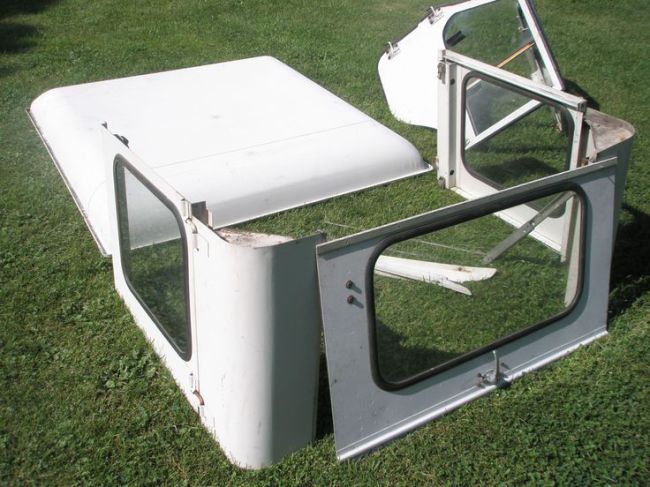
Possible cut-down CJ-6 hardtop (same doors):
This M-38 with a 106MM Recoilless rifle (dubbed the M40). Below is a short video, followed by a press photo that is available on eBay.
Press Photo from eBay:
View all the information on eBay
“1971 Press Photo US troops test jeep-mounted 196mm M-40 anti-tank rifle in MD. This is an original press photo. Guns – Artillery. Crewmen drive the new jeep-mounted 106mm recoilless rifle into firing position during recent tests at Aberdeen Proving Ground, Maryland, in this picture released Tuesday in Washington, D.C., Department of Defense. The battalion anti-tank weapon, designated the M-40, reportedly has greater range and more destructive power than any other weapon available at battalion level.Photo measures 8.5 x 7.75inches. Photo is dated 10-12-1971.”
I’m not sure where I found this newspaper clipping, but Herbert Obadda had a bad day. No dachshund puppies were injured as a result!
Tom pointed out something I didn’t know. Some M-38s have patches along the top of the rear of the M-38 body over both rear vertical seams. This was a technical recommendation was the result of a problem caused by the weight of arctic tops, leading to the separation of the rear body seams.
Below are two unpatched examples:
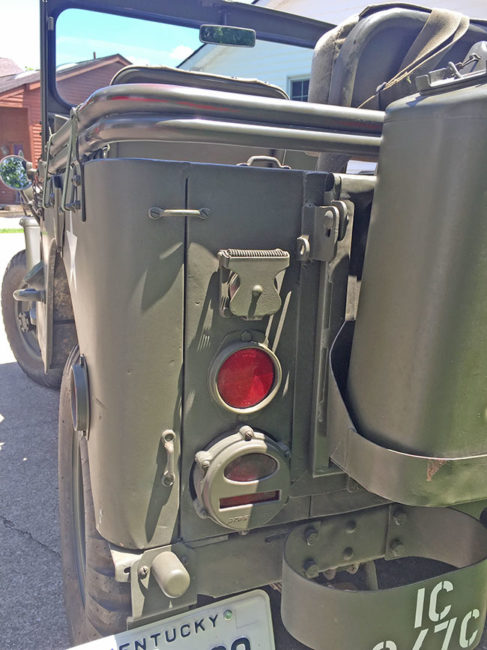
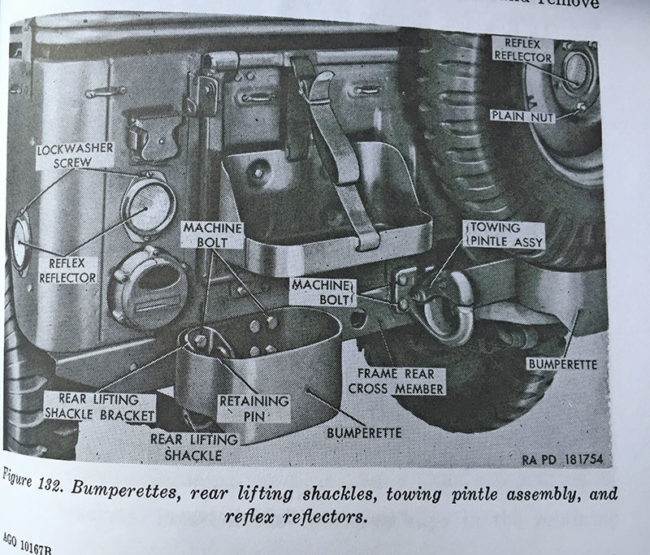
This example shows the crude patch example:
This tub looks to have been patched on both sides:
UPDATE: View the Miss Gotham winner here. Advertisements for the summer of 1960 Miss Gotham contest also appeared in newspapers. I also have learned who won the Surrey, but I need to scan the info still.
=========================
Originally posted May 13, 2020: A contest ad featuring a DJ-3A Surrey appeared in an August 1960 issue of Seventeen Magazine.
“Seventeen 8/1960.
Original magazine page.
NOTE: You are buying a magazine page, a piece of paper. Sheet size given is approximate. [10 1/2 x 13 1/2″]. 2-page ads noted. Occasional small edge splits not affecting image or type may be present.”
The Ithaca Journal printed this ad on November 10, 1960. Long’s Motor Sales out of Ithaca, New York, paid for the ad. It features an FC-150 and a CJ-5, while also promoting the tv-series Maverick.
The January 1958 issue of Willys News includes a rare article on the Willys Economy Delivery Truck, which was new for 1958.
This post began as a single newspaper photo and caption titled “Learn About Blitz Buggies” that Mario posted to Facebook. Just before I readied the post, I figured I’d see if there was a better quality version of the photo he posted.
To my surprise, when I searched for “About Blitz Buggies”, the results returned numerous seemingly press release photos over the summer and fall of 1941. No credit for the photos are provided. Given the titles are mostly identical and all showed various soldiers “working” (but probably posing) in front Ford GPs, I can’t help but wonder if this was a subtle campaign by Ford Motors to encourage the adoption of the Ford GP “Blitz Buggy” by the military.
So, here are some random newspaper photos from 1941 (there are many more during 1941).
June 26, 1941, Manhattan Mercury out of Kansas:
June 17, 1941, Montgomery Advertiser out of Alabama (looks to me like the same person as above, yet the caption shows a different name):
 July 13, 1941, Akron Beacon out of Ohio:
July 13, 1941, Akron Beacon out of Ohio:
![]()
August 16, 1941, Star Gazette out of Elmira, New York:
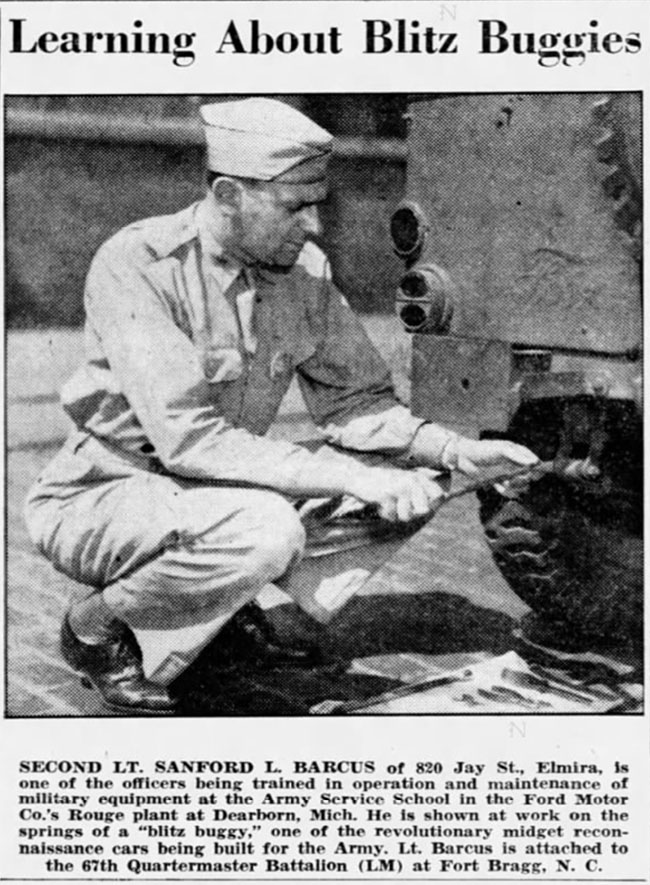
August 24, 1941, Austin American out of Texas (that Ford logo looks a little too obvious):
Taken by Jay Higgins on May 28, 1947, and published by the USDA Forest Service, this photo is shared on archive.org. The confusing part is that this is a May 1947 photo, but CJ-2As with passenger side bow holders weren’t supposedly built until 1948. The photo does not appear reversed, as the reflector is on the correct side in the rear.
Two different 100+page Willys Commercial Data Fact Books on eBay. One is listed at $95.99 and the other at $159.99. I’ve never seen one of these, so I’m not sure all of what is inside them.
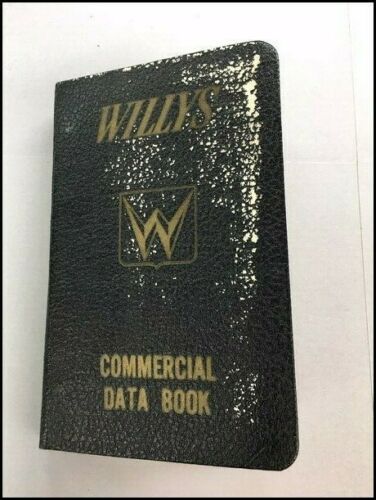
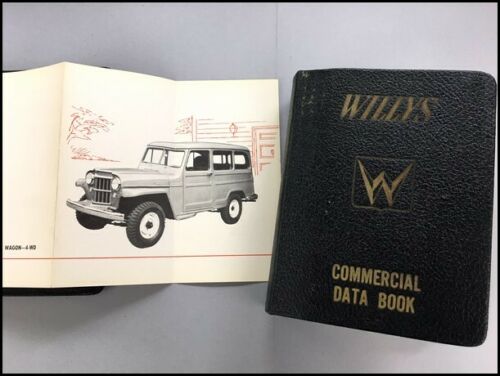
The interior pics appear the same for both:
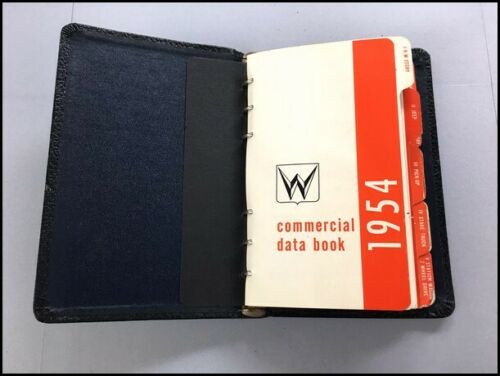
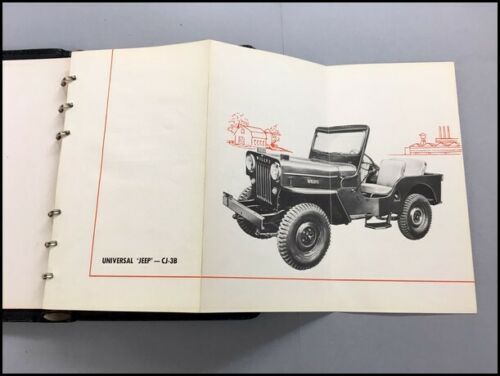
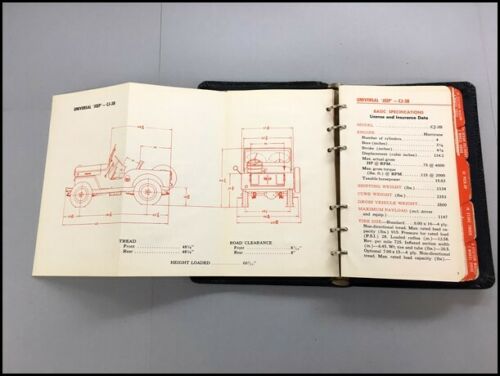
This September 28th, 1941, article covered the ‘cold shoulder’ given to American Bantam by War Department.
A few items I found on my phone. I think all these photos were on Facebook?
Some thought when into the mods on this jeep:
This sedan jeep is odd even for custom hardtop jeeps.
UPDATE: This brochure appeared on Facebook a while back.
===========================
Originally published October 2016: The American Chain & Cable Company’s Manley Division produced these Jeep Wrecking Cranes in the late 1940s. I can’t imagine there are too many of these around. This brochure is from a 1948 Industrial Equipment book.
This issue has some good articles, from new dealers, to jeeps in media, to the Schreiders’ first big adventure in their Ford GPA, Tortuga, from the Arctic Circle to Argentina (opposite direction of yesterday’s adventure).
This original poster featuring a Ford GP just sold on eBay yesterday for $177.50.
“Original poster printed by the US Government Printing Office. This poster was professionally mounted on what looks like painters canvas so should be ready for framing. Very good condition with sharp color. Measures approximately 43″ x 30-1/2″.”
UPDATE: This is an extensive update to the 2017 post about Pedro and Carlos Rocasalvo’s 1946-1949 trip from Argentina to Alaska and back.
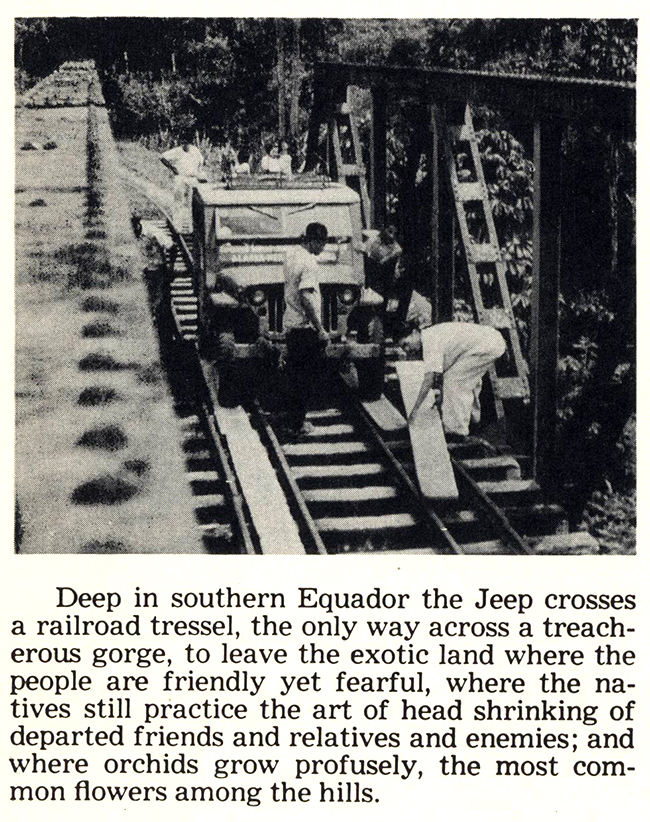
CREDIT: February 1955 issue of the Willys News. The photo shows Pedro Rocasalvo and some helpers using boards and a railroad track to help the jeep cross a deep gorge. This was part of the return trip to Argentina.
On June 5, 1946, two brothers, 24-year-old Pedro and 19-year-old Carlos Rocasalvo, mounted bicycles at their home in Buenos Aires, Argentina, and began an adventure north. They carried 80lbs of baggage and $100. Their ultimate goal was to reach Fairbanks, Alaska. They expected the trip to last five years. Their father, a clothing goods salesman, was against the trip, but the boys were confident that they’d be okay.
A budding journalist and photographer, Pedro and his brother supported their trip through serialized and syndicated reports to twenty-six newspapers back in Argentina. The pair planned to film their journey and use their notes and articles to write a book about their adventure.
During their trek to the United States, the pair survived four crossings of the Andes, a “ringside seat at Bolivia’s revolution”, and hacking their way through 300 miles of Colombian Jungle that proved the worst part of their trip. During their 26 days in the jungle, they shot and cooked their own food. In the evenings, the brothers slept in trees, but had to select the trees carefully due to snakes and other animals.
At Colon, Panama, the exhausted boys were diagnosed with Malaria; they were treated for the disease and slept for four days.
Once in the United States, the pair’s lack of English didn’t slow them down. Eventually, after twenty-seven months of riding, they reached Los Angeles, arriving in March of 1948. While in Hollywood, Pedro studied photography at Paramount’s photography school for a month.
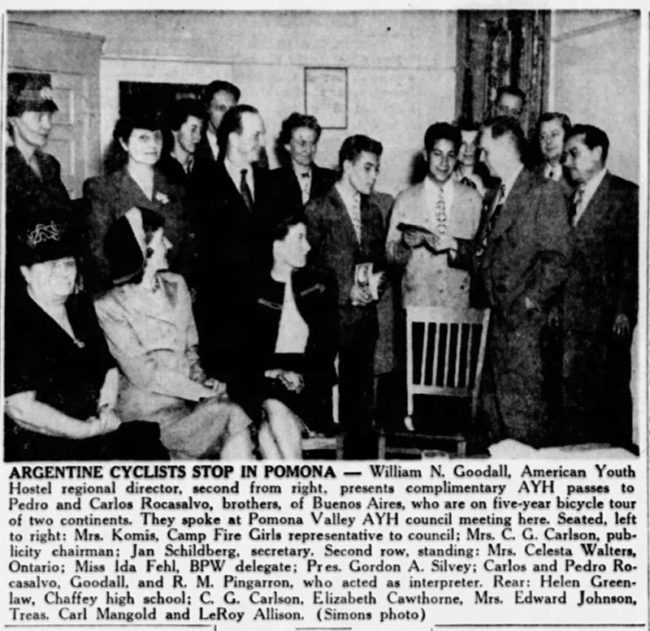
CREDIT: Pomona Progress Bulletin, Pomona, California. Pedro and Carlos Rocasalvo receive American Youth Hostel passes.
Soon, they were back on their bikes again, arriving at the YMCA in Portland, Oregon, in June of 1948. There, an interpreter named Celita Dextre, fluent in Spanish and English, was brought in to help the boys tell their story. There may have been some sparks between Pedro and twenty-three-year-old Celita, because she surfaced again later in the trip.
After additional stops in Seattle and Vancouver, the pair made a hard ride for Fairbanks.
These images were located at the Hawaii State Archives, Digital Collections. The front bumper on this jeep was pretty beat up! All photos are from the Palmyra Atoll and include Jean Hobbs and Leslie Fullard. The site was very slow when I was exploring it, so searching is a little tedious.
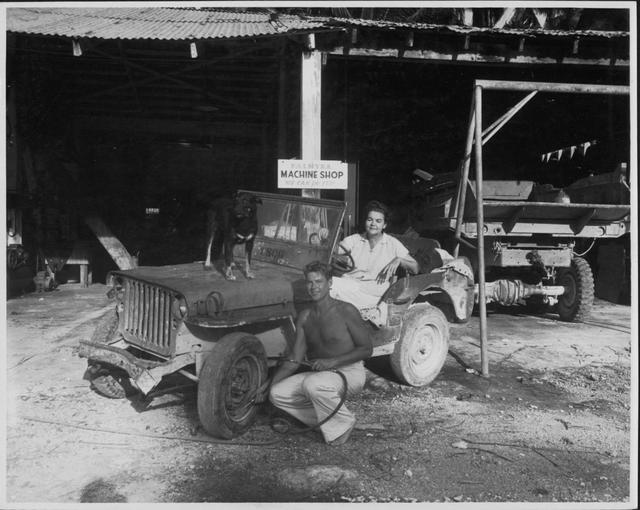
http://gallery.hawaii.gov/gallery2/main.php?g2_itemId=36132 Machine shop on Palmyra Atoll, formerly used to service military vehicles. Jean Hobbs in jeep with Leslie Fullard
This second photo includes the front of the jeep and was taken at the local laundry mat.
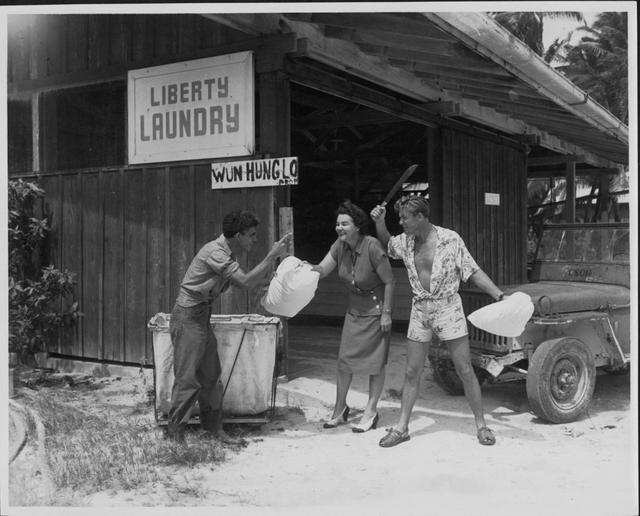
http://gallery.hawaii.gov/gallery2/main.php?g2_itemId=36123 Joe Cavahlo, Jean Hobbs and Leslie Fullard-Leo
This third photo was taken at the same laundry:
A friend donated this Durkee-Atwood Windshield De-Icer / Defroster to eWillys. It looks like it was stored well, as everything looks in good shape. It comes in the original metal box. I don’t know anything about these and not sure what the value should be. If anyone’s interested, let me know (d @ deilers.com).
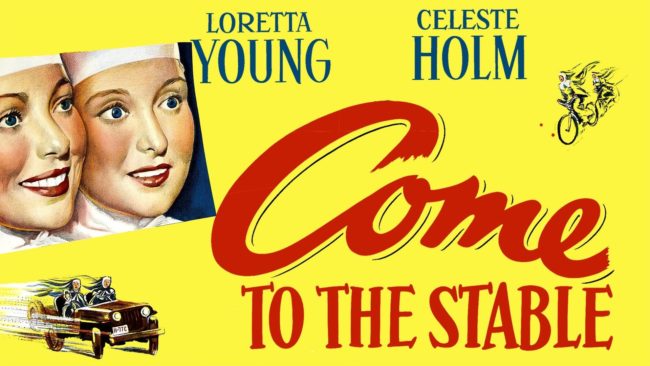
The movie Come to the Stable includes a jeep in the movie and on many posters about the movie. Based on how often a jeep appears on advertising literature, I thought a jeep might have played a prominent role, but after reading a movie synopsis, it doesn’t seem that way. I couldn’t find a full version of the movie online to see for myself, but there is a version on Apple TV (and likely elsewhere).
The movie features a song titled “Through the Long and Sleepless Night“, with a record jacket that includes a jeep image. It was the reason I began researching the movie:
These are posters found online:
This issue of Willys News includes a variety of FC-related articles, but also takes a full-page look at the Truth-or-Consquences, New Mexico, 2nd Annual ‘Jeep’ Derby.
I bought this off of eBay. I imagine this pencil is from the late 1940s based on the “J” logo. The lead remains nice and snug in the pencil, so it’s still very usable. Thanks to Marty for spotting it!